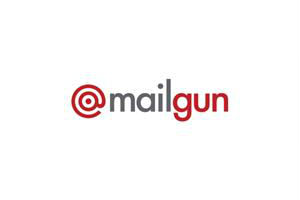Rackspace Spinout Mailgun Raises $50M for API-Focused E-mail Service

San Antonio—For businesses sending out thousands or millions of receipts and marketing materials over e-mail to customers every year, there’s plenty to monitor. You have make sure those e-mails are delivered, that they stand out among the spam (or aren’t mistaken for it), that any customer replies go to the right employees, and that any problems delivering them are quickly remedied. Much of that technical work often falls to software developers.
A company that aims to help those developers manage automated e-mail systems for their employers is being spun out of Rackspace, the San Antonio cloud computing company that sold to private equity last year for $4.3 billion. Mailgun, a startup that Rackspace acquired in 2012, has raised $50 million in financing to become a private company.
The funding was led by Turn/River Capital, a San Francisco venture firm that has bought companies from Rackspace before and has expertise helping startups improve operations and marketing, according to William Conway, Mailgun’s new CEO. Scaleworks, a San Antonio investor founded by former Rackspace executive Lew Moorman and investor Ed Byrne, also participated in the round, as did Rackspace itself.
Mailgun is using the $50 million to further develop the product and to make new hires in San Antonio, its headquarters, as well as in Austin and San Francisco, where it has offices. That includes hiring people for sales, marketing, product development, and customer service, Conway says.
Founded in New York, Mailgun went through the Y Combinator incubator program before being acquired by Rackspace. The startup has paying customers like Slack, Stripe, and Lyft, which use it to e-mail receipts and promotions to customers, and is profitable, Conway says. The product is free for the first 10,000 e-mails you send, and then Mailgun charges a fraction of a cent per e-mail above that, a price that increases with the more e-mails you send (like income taxes on the more money you make). One million e-mails a month costs $421.50, according to the company’s website.
The value of the product for software developers is in the various application program interfaces (APIs) Mailgun has developed, which allow the developer to integrate Mailgun’s various services in their internal applications or business intelligence tools, Conway says. That can help a developer work through problems as simple as making sure you deliver the right e-mail the right way—like making sure a receipt doesn’t get hidden behind marketing material—to as complex as tracking down data logs that Mailgun has stored, which can be used to understand why an e-mail failed to be delivered, Conway says.
“It’s an industrial strength tool,” Conway says. “It’s meant to have a comprehensive API that you can attach to your application.”
That “industrial strength” makes it stand out from other services like Mailchimp, Conway contends, a popular automated e-mail company that targets small and mid-sized businesses. That developers can integrate its APIs in their own systems gives Mailgun value over other competitors, like Amazon, Conway argues.
In addition to its basic services, Mailgun also offers a managed service—much like the customer service offerings its former parent Rackspace sells that helps companies manage and troubleshoot their cloud computing needs—which advises customers on sending their e-mails and helps them monitor and troubleshoot problems.
Rackspace previously sold another business, Airbrake.io, to Turn/River, which helped make this connection, Conway says.
The decision to spin Mailgun out comes after Rackspace sold to funds associated with New York-based Apollo Global Management in August. Rackspace has spun out multiple other businesses over the last few years, including Jungle Disk, Cloud Sites, and HelpSocial.
“As Mailgun continued to stay on the bleeding edge of technology, Rackspace really moved more in the direction of supporting public clouds instead of building their own cloud. That created a misalignment between Mailgun and Rackspace,” Conway says about the spinout. “Mailgun continued to grow and we needed more investment than they could provide because we were a noncore asset.”
(30)












